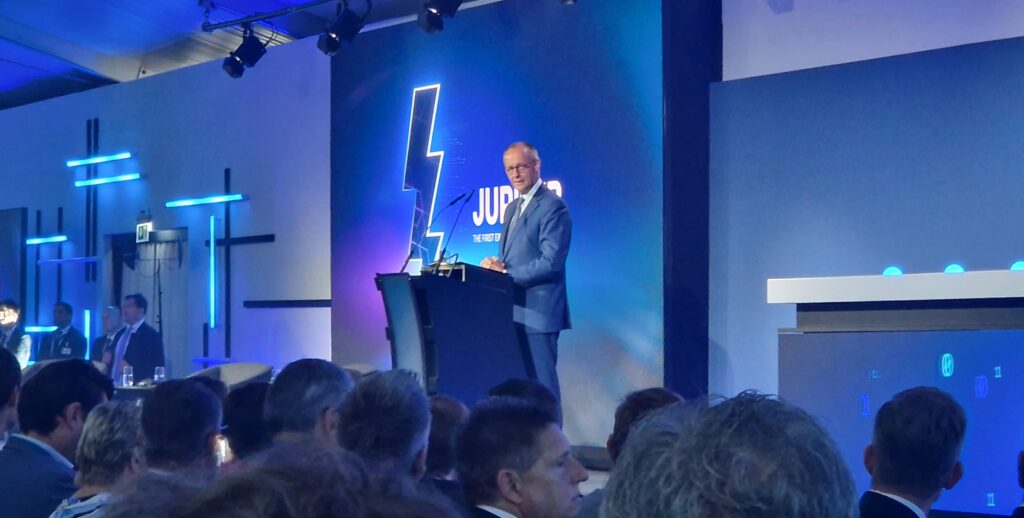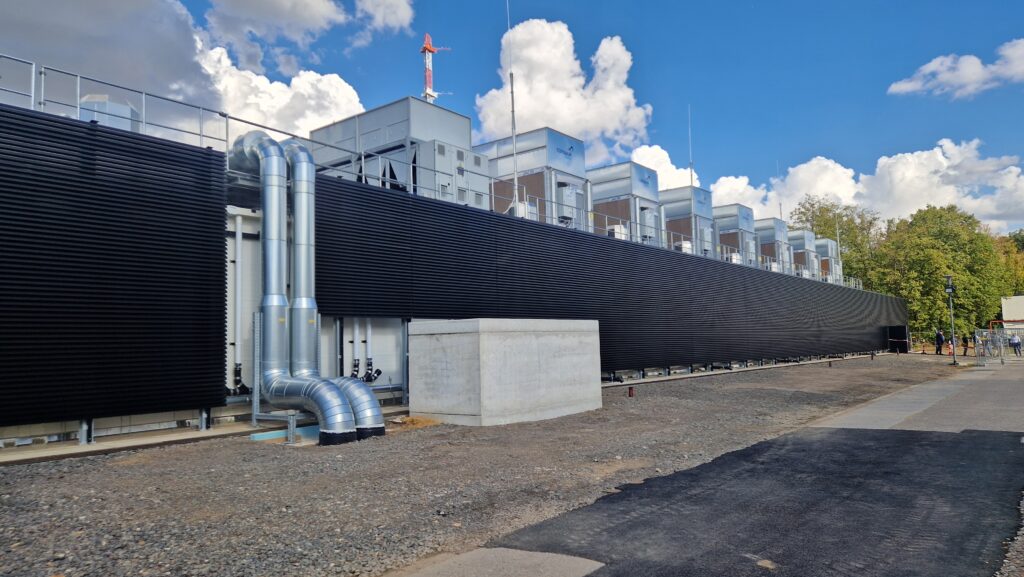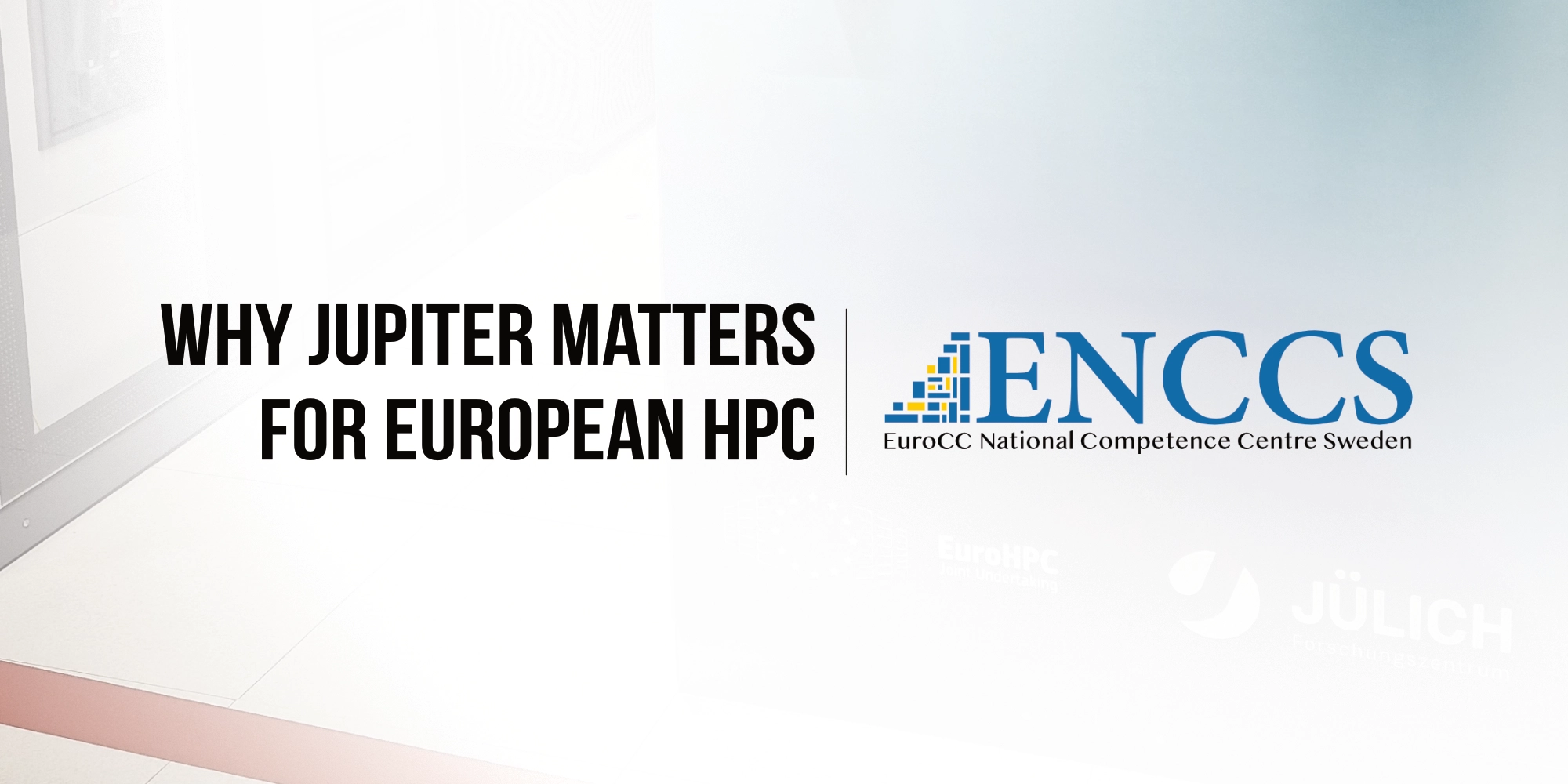On September 5th 2025, ENCCS Director Thor Wikfeldt and Hanifeh Khayyeri, Vice President Computer Science at RISE, joined the inauguration of JUPITER, Europe’s first exascale supercomputer, at Forschungszentrum Jülich in Germany. The event was highly symbolic of Europe’s digital ambitions and was attended by senior leaders, including German Chancellor Friedrich Merz, highlighting the political and scientific importance of the milestone.

A Milestone for the EuroHPC JU Vision
JUPITER is the first European system to break the exaflop barrier, capable of executing over one quintillion calculations per second. The JUPITER team built the system with a modular supercomputing architecture designed by ParTec and Eviden, combining a CPU-only cluster (with European SiPearl Rhea1 processors) with a GPU-accelerated booster module (with NVIDIA Grace-Hopper superchips) for AI and data-intensive tasks. This flexibility ensures that JUPITER can serve both traditional HPC workloads such as climate, materials, and plasma physics simulations, as well as next-generation AI and machine learning applications.
The system is part of the EuroHPC JU vision of a federated, secure, and hyper-connected infrastructure. Additionally, with the support of 33 National Competence Centres, including ENCCS, Europe now has a flagship platform that stands on par with the best systems worldwide. The exascale leap means that simulations once considered impossible – from multiscale climate modelling to drug discovery – are now within reach.
What It Means for Users
Furthermore, for companies, research institutes, and public authorities, JUPITER represents a paradigm shift. The system offers free access through the EuroHPC JU open calls, lowering barriers for SMEs and innovators to exploit world-class computational power. Through ENCCS’s support, Swedish organisations can:
- Optimise and port codes for exascale performance,
- Run large-scale simulations and data analyses,
- Explore hybrid HPC-AI workflows, and
- Accelerate innovation cycles in fields ranging from manufacturing to life sciences.
JUPITER is also tightly connected to the emerging AI Factories and upcoming AI Giga-Factories, and will play a crucial role in bridging HPC, AI, and quantum technologies within Europe’s digital ecosystem.

Why It Matters to the Community
The launch of JUPITER as Europe’s first exascale supercomputer signals that Europe has stepped firmly into the exascale era, ending its lag behind the US and Asia. It boosts scientific competitiveness, drives digital transformation, and creates a fertile ground for talent development in advanced computing.
For Sweden, it means that researchers and companies can access not just petascale, but exascale resources through ENCCS, ensuring that Swedish innovation remains globally competitive.
In short, JUPITER is more than a supercomputer: it is a strategic cornerstone for Europe’s future, enabling science, industry, and society to tackle the most complex challenges of our time.








